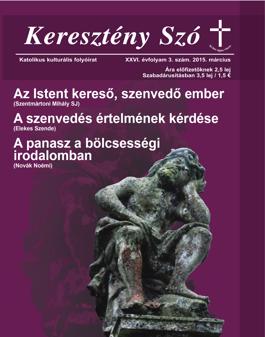
We kindly inform you that, as long as the subject affiliation of our 300.000+ articles is in progress, you might get unsufficient or no results on your third level or second level search. In this case, please broaden your search criteria.

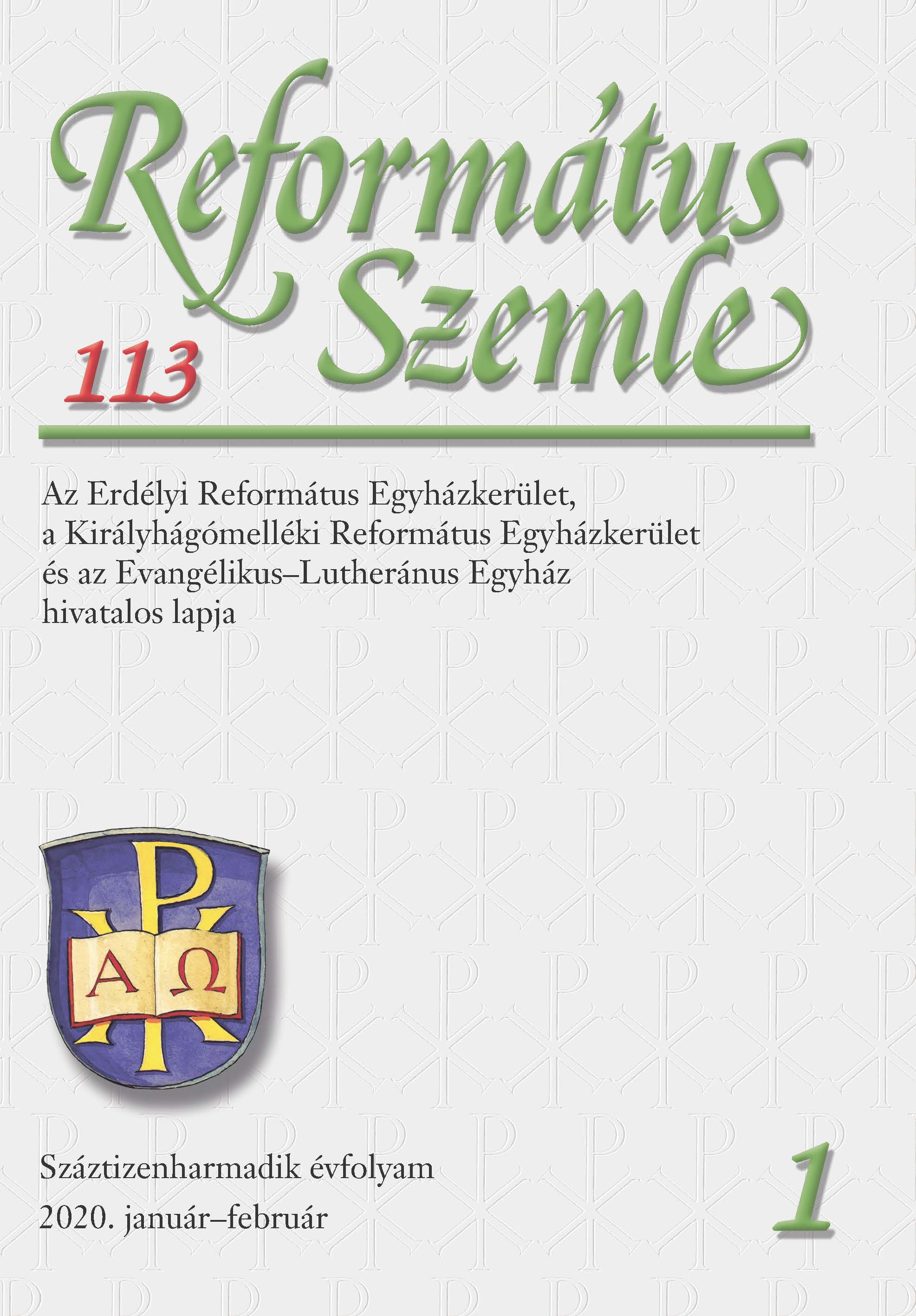
Székely József: Hivatás a hivatal árnyékában. Az igehirdetés helye az erdélyi magyar református lelkipásztori hivatáskép alakulásában. Igehirdetői önképünk és öntudatunk változása az 1990–2014 közötti időszakban. Exit Kiadó, Kolozsvár 2019, ISBN 978-973-7803-91-7, 262 old. (Málnási Ferenc)
More...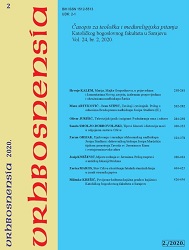
This is the second part of a paper that contributes to knowledge about the relationship between Brod and the people of Brod and Archbishop Josip Stadler. Through his example it is possible to acquire a clear view of how politics dictates and forms the consciousness of citizens towards their fellow citizens, even those whom may be ranked among the most prominent. The political struggle at the national level was also reflected at the local level. Stadler was a great opponent of the Yugoslav option and the entry into a joint state with Serbia. His political option was Western, “trialistic” with a reliance on the Austro-Hungarian Monarchy; in social matters his option was Christian-social with a distinct feeling for the poorest citizens, regardless of religious affiliation. “Materinska riječ - The mother tongue” as the newspaper of the Croatian-Serbian coalition (whose leader was Dr. Vatroslav Brlić) and “Posavska Hrvatska-Posavina Croatia” as the rightwing newspaper of Frank’s side, are two papers that take a completely opposite position towards Stadler. For the Materinska riječ, Stadler is a “dangerous man” because of his opposition to their political program of “one nation with two names” and a common state with Serbia. As most of the newspapers published in Brod between the two wars represented Yugoslav ideology, Stadler was rarely mentioned and practically forgotten in them. His values for Croatian people were temporarily recognized during the Independent State of Croatia. After the advent of the communist dictatorship, primarily in the newspaper Brodski list, he was not even mentioned. With the collapse of the dictatorship, Brod and the people of Brod got to know their great fellow citizen. The biggest credit for this goes first of all to the Sisters of the Servant of the Infant Jesus, a religious community founded by Archbishop Stadler.
More...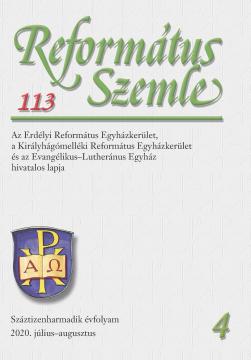
Review: Altarul Banatului. Revista Mitropoliei Banatului. XXX (LXIX) új folyam, 2019/4–6. április–június, ISSN 1220-8388, ISSN 9 771220-838001, 160 old. (Bányai László)
More...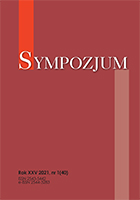
Consecrated life born from the God’s initiative should be considered in the charismatic perspective. Holy Spirit, who works in the Church, not only stands at the beginning of each institute of the consecrated life, but has been the source of countless blessings and positive fruits throughout the centuries. Consecrated life manifests itself as the always changing reality which under the inspiration of the Holy Spirit brings about many fruits. In the article one can find the explanation for Trinitarian dimension of the presence of the Paraclete in the consecrated life: Firstly in the vocation of a human to sainthood, secondly in the charism of the particular institute or form of the consecrated life. Finally thanks to these dimensions mentioned above one can easily discover another one, which is the charismatic form of living within the Church.
More...
Is the reverence and cult of the Sacred Heart of Jesus still topical in the mission of the Church? The text „God’s Heart in the mystery of its opening to the modern world” is an attempt to answer the question above. Biblical depiction of the word „heart” has basically symbolic and allegoric meaning. Repeatedly this word appears in connection with the word „love” both in regard to God and human. Incarnated God, the Word of the Father, became truly human with the loving heart and he redeemed the world. The Heart of Jesus pierced with the soldier’s spear on the cross is still open to the present day with his love. A special place in this regard is given to spreading the idea of the social kingdom of the Heart of Jesus and the civilization of love.
More...
Formation towards the vow of poverty is one of the elements of the preparation of consecrated persons aimed at living according to evangelical counsels. In the Congregation of the Priests of the Sacred Heart of Jesus all three vows are inscribed in the figure of reparation characteristic for the Institute as well as oblation dimension which underlines total devotion to God through religious consecration. The documents of the Congregation besides the goals and various aspects of formation also set out the essence of the vow of poverty, encouraging life with its spirit. The goal of formation is to shape the heart of a religious person, who supposed to more and more reflect in himself the way of life of the poor which was chosen by Jesus Christ. That formation has also the community dimension, through which the religious community should become a witness of non-remissive goods and thus its prophetic dimension.
More...
Review: Emil Anton, Kahden virran maa. Sivilisaation ja kristinuskon irakilainen tarina, Helsinki 2020, pp. 288.
More...

The Covenant at Sinai is the core experience of God in the Old Testament, and the heart and foundation for the New Testament writings, which are founded on Christ’s Incarnation as the supreme Theophany. The Christian Church’s central ceremonies, in particular the celebration of the Eucharist, are often both the locus and the touchstone for the individual believer’s experience of God. This article briefly traces this continuity from the Old Testament to the New Testament era, pre–Nicene Christian writers, the early monks, and concludes with Byzantine Hesychasts.
More...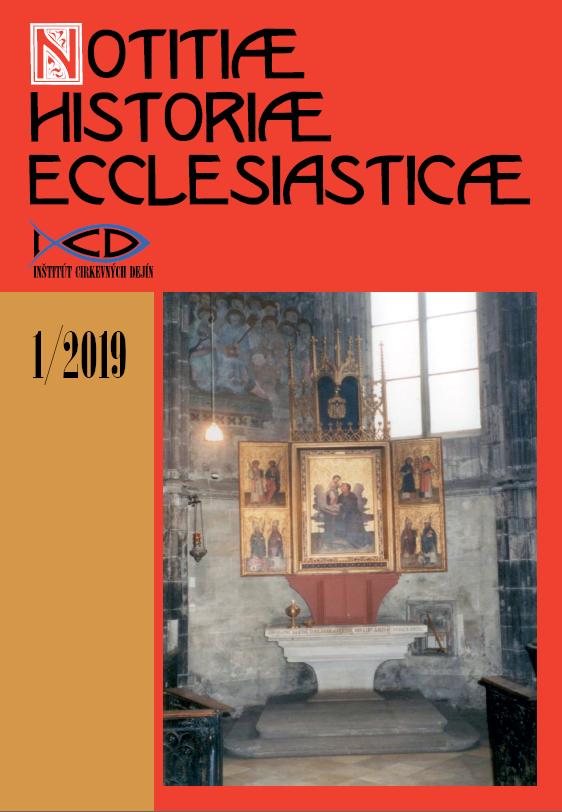
This study compares individual models of pastoral care in the university environment of the Czech Republic, Poland and English-speaking countries. These are three different models which arose on the basis of the differing historical, societal and political conditions of the different countries. While in the Czech Republic, pastoral care of university students was officially impossible during the age of totalitari-anism, in Poland it continued despite various restrictive measures on the part of the political authorities. In contras, in English-speaking countries there were no political limitations, though it significantly changed its focus under the influence of the secularization that began to be expressed in Western Europe in the period after the Second Vatican Council. In the context of political changes after 1989, pastoral ser-vices in the Czech Republic started from nothing, in Poland the church continued under freerconditions and the concept of pastoral care was maintained in English-speaking countries, but it significantly changed its content. The original content – carefor the spiritual good of students, was replaced by an effort to support the general well-being and psychological well-being of students so that they would have the best chance of achieving success and subjective satisfaction.
More...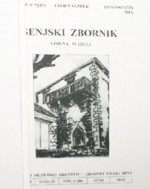
The paper uncovers previously unknown things which are connected to the life of Vjenceslav Soić, particularly from the period between 1869 and 1875. Simultaneously followed are the activities which are connected with Soić’s political activity, the annual incomes and his status in the church hierarchy. From this it can be seen that at almost the same time an improvement in all areas (with the church, finances and politics) of activity was experienced. About how informed and regularly updated he was about things, which happened in his interest around him, is witnessed in the letters which Antun Vakanović sent, the then minister of finance, president of the parliament and acting ban. After that Senj came under civil administration and things began to change. The complexity of contemporaneous relations were shown sufficiently with the departure of Soić from the position of bishop. The cause may have been more, but the occasion was obvious – a double celebration in June 1875 in the Pope’s name. This initiated a public lynching against Soić who tried to sanitise the damage and reach a compromising solution with the closure of the lyceum, which could have been one of the causes of the dispute. Bedini, who wanted Rijeka to be the new centre of the bishopric, presented another cause. Senj became a completely different centre when it came under civil rule in April 1872, and Soić was no longer needed by the Emperor who ceased to be his supporter and thus held it in the place of the bishop.
More...
The study presents and analyses solutions in common law relating to the protection of pastoral secrecy, and more precisely the secrecy of pastoral conversation in the Evangelical Reformed Church in the Republic of Poland, which stems from the Swiss branch of Reformation and which has a tradition of 450 years in Poland. The analysis covers the institution of pastoral secrecy as compared to the institution of the seal of confession which is clearly protected under the provision of the Code of Criminal Procedure, the Code of Civil Procedure, the Code of Administrative Procedure, the Tax Ordinance Act and the Supreme Audit Office Act. Furthermore, the study features a presentation of internal regulations of the Evangelical Reformed Church concerning pastoral secrecy and an analysis of the case law of Polish and German courts applicable to the protection of that type of secrecy.
More...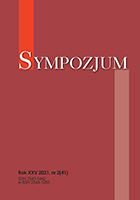
The reports on the increasing number of divorces/separations in Poland and the statistical data on the scale of the problem of addictions and violence (in the social welfare system, and not only), became a contribution to the theoretical considerations on the need and limits of saving marriages in crisis affected by the above mentioned problems. It was explained: from what it is worth/necessary to save a marriage in crisis, who is to save it, how to do it, what it means „at all costs” (who pays what price?) and where are the limits of saving? The issues presented in this article may be interested to many counselors, therapists, social workers, and spouses caught up in addiction and/or violence.
More...
Taking the inspiration from the history of the cult of the Sacred Heart of Jesus, and especially from the private revelations of saint Margaret Mary Alacoque, a number of national bishops conferences dedicated the local churches and whole nations to the Sacred Heart of Jesus. On 11th June, 2021 the Polish bishops conference renewed such act in the difficult situation of the church and the nation, moreover even in the face of weakening devotion to the Sacred Heart of Jesus. Every act of dedication and entitlements is a religious act, which obliges to the fulfilment of the commitments that have been taken. In this context the question arises, and what next? In the form of suggestions few concrete steps have been proposed.
More...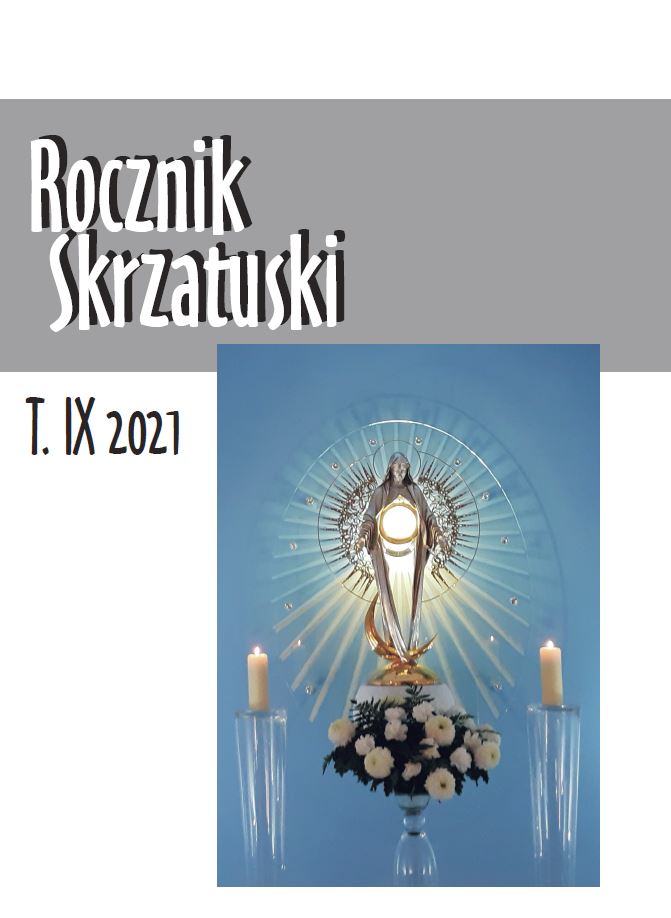
On December 8, 2020, on the occasion of the 150th anniversary of the announcement by Bl. Pius IX, St. Joseph a Patron of the Catholic Church The Holy Father Francis published an apostolic letter about St. Joseph entitled Patris Corde and proclaimed the Year of St. Joseph from December 8, 2020 to December 8, 2021. The article presents the presence of Saint Joseph – the Patron of the Church in the teaching of the Popes (except Benedict XVI), starting with Pius IX, who on December 8, 1870, entrusted the Church to the care of the Carpenter of Nazareth, the Bridegroom Of the Virgin Mary, Guardian of the Son of God. By the decree of the Qemadmodum Deus, Pius IX laid the foundations for the further development of the teaching of the Magisterium on St. Joseph. All popes agree that the argument for declaring St. Joseph, the patron of the Church was the ministry of the guardian of the Holy Family, marriage with Mary, and watching over the safety and upbringing of the Son of God. The Holy Family of Nazareth already contained the beginnings of the Church, so the patronage over it is for St. Joseph, an extension of the mission received from God to Jesus Christ, Head of the Church and Mary, His Mother. St. Joseph does not end on earth, but continues in heaven throughout the history of the Church.
More...
The article is a continuation of the publication of sermons (homilies), probably from the 19th century, kept in the resources of the Archives of the Koszalin-Kolobrzeg (Kołobrzeg) Diocese. Earlier studies are included in the archival issues of Rocznik Skrzatuski. A homily entitled Home. IX p: P. refers to the pericope Lk 19:41–47b., which is intended for Sunday IX after the Solemnity of Pentecost in the Roman Missal of Pius V. The brevity of the content, the colloquial style of writing (punctuation based mainly on commas), the simplicity of the language taken from the Bible and from the everyday experience of the audience prove that we are dealing with a preacher’s sketch. Interpreting the meaning of the image of Jesus weeping over Jerusalem, the preacher sees in it a description of the state of the soul closed to God’s grace. The man is unable to reach his final destiny without God’s help, however, rejects his goodness. He is committing an even worse crime because he wastes the shed Blood of God. The deplorable condition of the soul can be repaired by obedience to Good inspiration (the Holy Spirit). The sad fate of the people of Jerusalem, over whom Jesus wept, is to be a forever warning not to make the same mistake. And the dignity of a child (son) of God and joint-heir of Jesus Christ in eternity is to be an invitation to conversion.
More...

